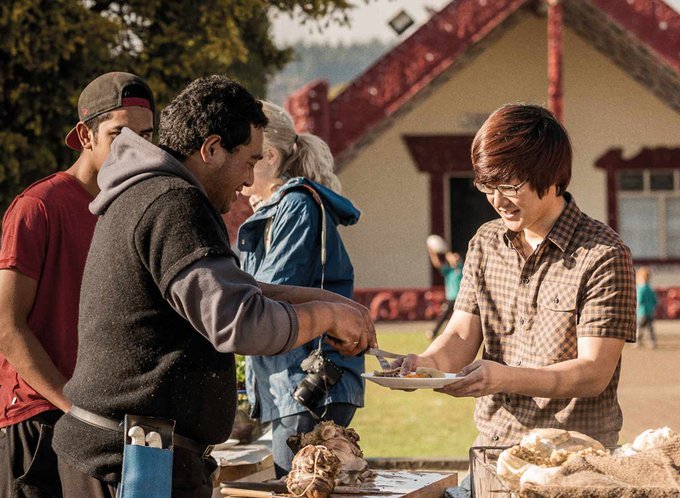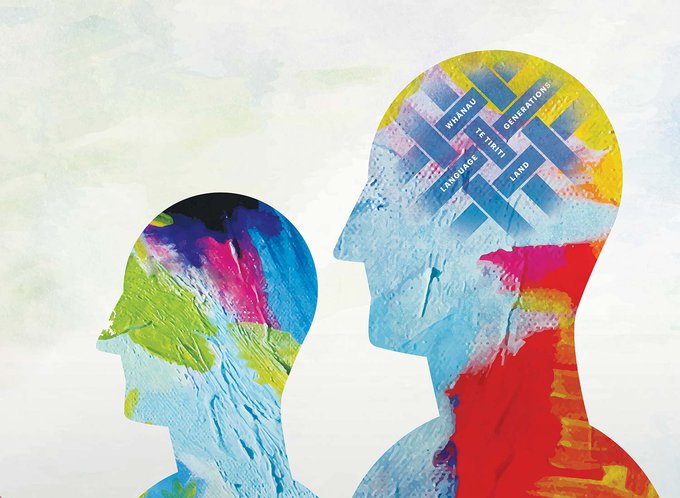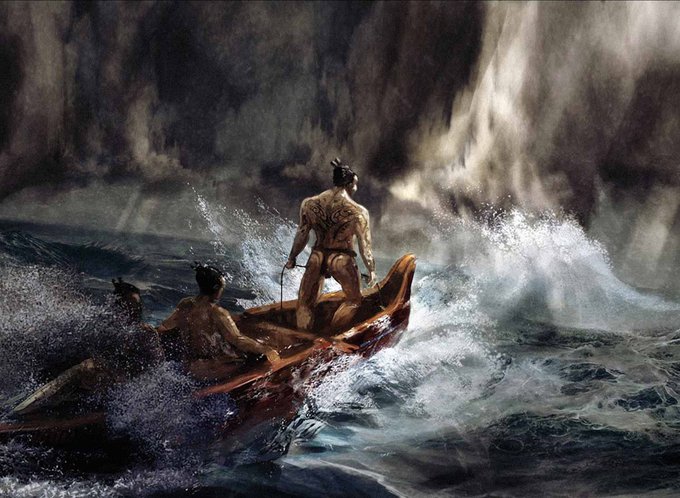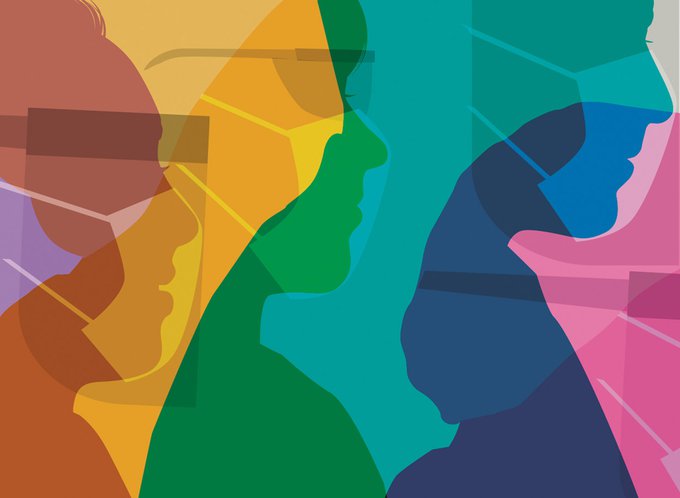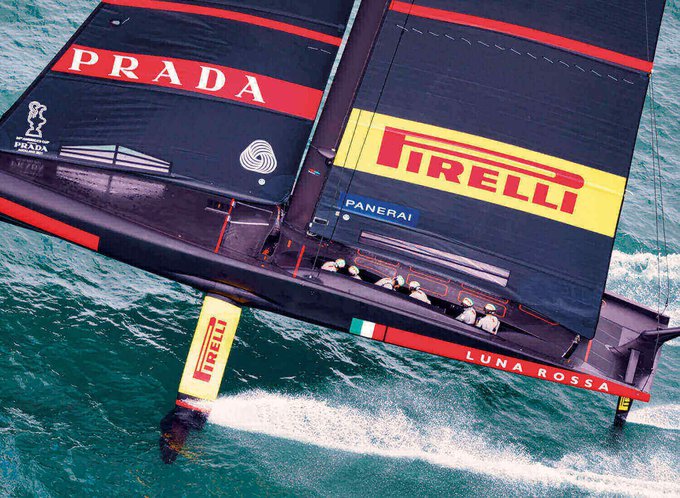An iwi-led organisation’s environmental management arm is using traditional Māori systems to think about work differently.
Much of Luke Barnsley’s (Ngāti Toa) work has been dictated by the moon.
His team spent nine months in 2022 trialling a work schedule based on the maramataka (Māori lunar calendar), rather than a traditional Monday to Friday work schedule.
Luke works for Ngāti Toa running an environmental conservation team, which includes looking after the iwi's waterways, moana, and whenua – an area spanning Wellington and Kāpiti Coast.
Projects include improving fish passages through the region’s waterways, pest control, and research into mahinga kai (traditional food-gathering practices).
Luke grew up in Porirua, and his whānau always acknowledged Matariki, but it wasn’t until more recently that he learned about the full maramataka as a timekeeping system.
“It’s something that has recently come to the surface for us in the last 10 years. It was one of those things that was lost through the process of colonisation to my whānau and hapū group in particular.”
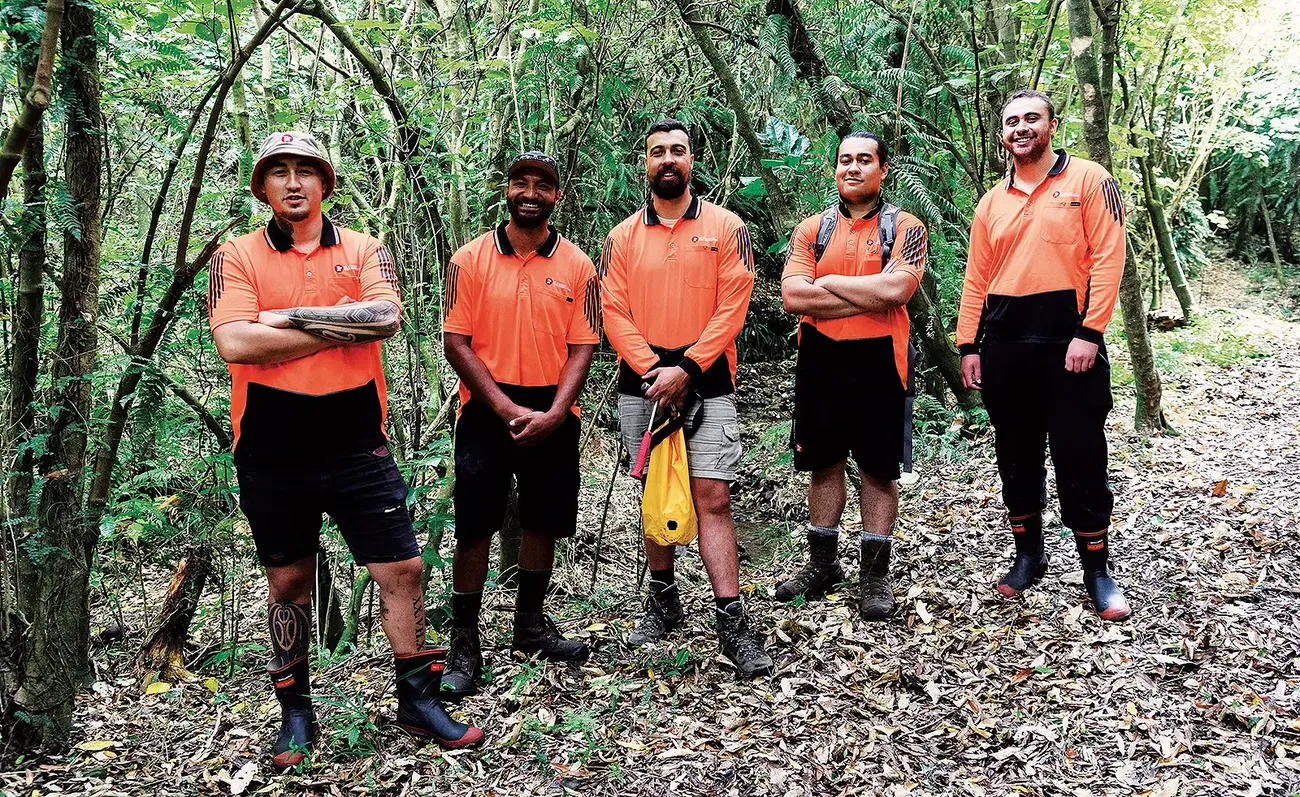
Revitalising old knowledge
In taking on this role as an operational environmental manager with Ngāti Toa, he wanted to revive these old knowledge systems and use them to deliver their work in a more efficient, sustainable manner, he says.
He proposed trialling a maramataka system to his team, which meant abandoning the traditional Monday to Friday work schedule. Instead, the maramataka guides three key phases of work: the waxing phase, the full moon phase and the waning phase.
Luke says they adjust their work activities to match each of the three phases, with longer breaks in between.
“The waxing phase is good for weed control and making sure that you’re pulling weeds at a point where it’s going to be quite hard for them to recover.
“The full moon phase is generally known for being good for planting, so we do our planting around our full moon phases.
“And the waning phase is good for stuff pertaining to wai, awa, moana, so water generally, so we try to do monitoring work in and around the harbour in that phase.”
Adopting maramataka
Luke says the response has been positive from the team, who see the benefit of utilising this passed down knowledge in looking after te taiao (nature).
“My team was really keen to get behind it. For the most part I’d say people have been really receptive and interested in what we’re trying to do.”
Luke’s team use the moon to guide the best time for tasks like trapping pests.
Rethinking the team’s working schedule hasn’t been without its challenges. Luke says it has taken time for the team to get used to working across some weekends and sometimes for periods longer than five days at a time.
And they have also had to negotiate ensuring they still achieve their deliverables within a mainstream timeframe.
While it means the team can rest on low-energy days, they are also finding ways to preserve some high-energy personal time.
“We want to be able to leave enough energy for friends and family at home.”
Luke says it’s having the impact he expected, and overall the team enjoys it.
“There’s plenty of us who quite enjoy it, not having to come to work on low-energy days when we’re not feeling up to it. So it’s working well from a practical sense for us and I think it’s really helping deliver our project deliverables, milestones and KPIs,” he says.
Personal benefits
The benefits are more than just environmental – using the maramataka also benefits the team’s physical and mental health.
“We’ve got some people in our team who particularly struggle around the Māwharu and/or Whiro phases of the maramataka, a pretty renowned low-energy phase. So we’re really keen to work with the environment not only to help us deliver our work more efficiently but also to be in sync with it and not work against our wider environment, our taiao."
“And part of our thinking was that this will have lasting effects on our health, both physically and mentally, if we’re utilising the phases and the energies of the environment around us and how we live, in both a work sense and a personal sense.”
Know someone who might enjoy this?
Read this next
-
March 2021
Manaakitanga – more than just hospitality
-
July 2022
Climate change through a Māori lens
Professional life
See all-
March 2021
Made for today a century ago
-
March 2021
The great brain gain
-
March 2021
A hectic, horrific working holiday
-
March 2021
Smooth sailing for Southern Spars
